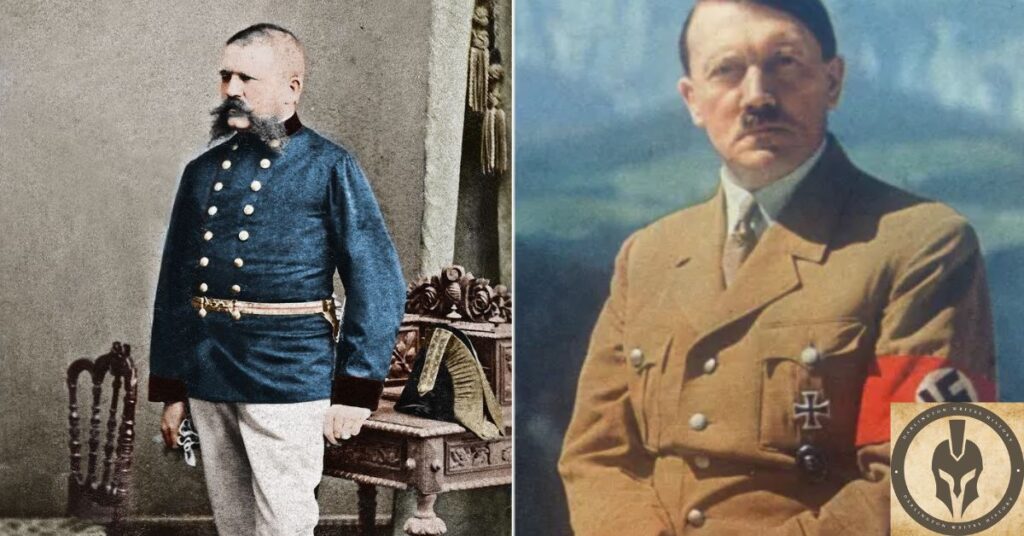When discussing the Hitler family, most people focus solely on Adolf Hitler, the dictator whose actions led to one of the darkest periods in human history. However, the story of his father, Alois Hitler, is equally compelling and complex. A man of humble origins who rose through the ranks of Austrian society, Alois was a stern patriarch whose life choices and personality traits left an indelible mark on his infamous son. In this post, you’ll find out ten lesser-known facts about Alois Hitler, shedding light on the man who played a pivotal role in shaping the environment that influenced Adolf’s early years.
Not Just Adolf’s Father
Alois Hitler is often overshadowed by his infamous son, Adolf Hitler, but Alois had a significant life of his own. Born in 1837, he started life as an illegitimate child. Alois took his mother’s surname, Schicklgruber, before changing it to Hitler in 1876.
Rise from Humble Beginnings
Alois began his career as a shoemaker’s apprentice before joining the Austrian customs service. Over the years, he climbed the ranks, eventually becoming a senior customs official. This career provided him with a stable and respectable social standing.
Three Marriages, One Controversy
Alois married three times, with his third marriage to Klara Pölzl, Adolf’s mother, being the most notable. The marriage to Klara was controversial because she was his niece, requiring a special church dispensation.
A Harsh Patriarch
Alois had a strict and often abusive nature. His authoritarian parenting style and harsh discipline had a profound impact on his children, particularly Adolf, who would later become infamous for his own tyrannical behavior.
Alois Jr.’s Rebellion
Alois’ eldest son from his second marriage, Alois Jr., had a tumultuous relationship with his father. He ran away from home as a teenager after repeated conflicts, leading to a strained relationship that never fully healed.
The Name Change
The decision to change his surname from Schicklgruber to Hitler was strategic. “Hitler” was a more common and respectable name in Austrian society. Alois hoped it would help him and his children in their social and professional lives.
Alois the Restaurateur
In the later years of his life, Alois bought a farm and opened a tavern called the “Gasthaus zum Hirschen” in the Austrian town of Weitra. This tavern became a gathering place for locals, showcasing Alois’ interest in socializing and entrepreneurship.
Children Out of Wedlock
Before marrying Klara, Alois had several children out of wedlock. His relationship with Franziska Matzelsberger, his second wife, began while he was still married to his first wife, Anna. This affair led to the birth of two children, including Alois Jr.
Austrian Nationalist
Alois was a staunch Austrian nationalist and held a deep disdain for the idea of a unified Germany. His nationalist views likely influenced the political atmosphere in which Adolf grew up. Their exact impact on Adolf’s ideology is unclear though.
Death and Legacy
Alois Hitler died suddenly in 1903 at the age of 65, collapsing at an inn during his usual morning glass of wine. His death left the family in a precarious financial situation, which Adolf Hitler later referenced as a challenging period in his early life.
Alois Hitler’s life was marked by ambition, discipline, and a desire for respectability. His story, often overshadowed by his son’s infamy, reveals the complexities of a man who, in his pursuit of status and control, unknowingly contributed to shaping a figure who would alter the course of history. While Alois’s legacy may be forever linked to the horrors of the Third Reich, understanding his life offers a more nuanced view of the forces that influenced Adolf Hitler’s rise. In the end, Alois Hitler’s tale serves as a reminder of how the choices and characteristics of one generation can echo powerfully into the next, with consequences beyond their imagining.

